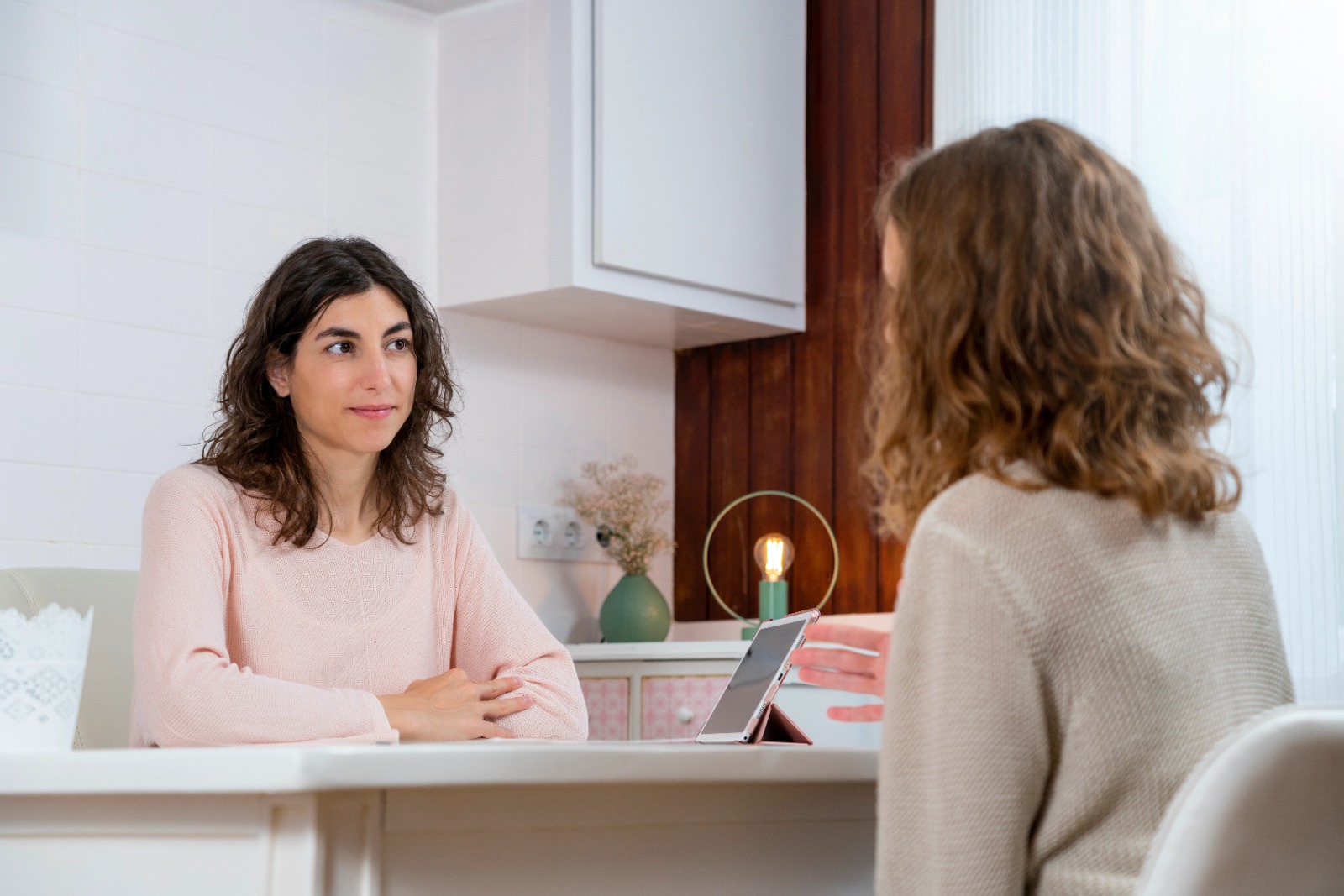
PCOS vs PCOD: What’s the Difference? A Simple Guide for Women
“My body is not a battleground. It’s a garden. Some days in bloom. Some days, just soil.”— Nikita Gill
Let’s face it: if you’ve ever Googled your period problems and ended up tangled in terms like “PCOD” and “PCOS,” you’re not alone.
They sound similar. They both have to do with hormones. And they both show up like that clingy ex who refuses to take a hint—messing with your body, your mood, and your confidence.
But PCOD and PCOS are not the same thing. They’re sisters, sure. But not twins.
Let’s unpack this with love, clarity, and maybe a dash of pop culture.
The Backstory (and why it matters)
Polycystic Ovary Syndrome (PCOS) and Polycystic Ovarian Disease (PCOD) are both hormonal conditions that affect the ovaries. If your body were a Netflix drama, hormones would be the moody director pulling strings behind every scene—skin, hair, weight, periods, moods, even fertility.
So when these hormones get out of balance, especially the ones responsible for your menstrual cycle and ovulation, your body begins to act… confused.
Okay, so what’s PCOD?
Think of PCOD as the more common, slightly gentler sister of PCOS.
In PCOD (Polycystic Ovarian Disease), your ovaries start releasing immature or partially mature eggs, which over time can become cysts.
It’s usually caused by hormonal imbalances and lifestyle factors like poor diet, stress, and lack of movement.
Around 1 in 3 menstruating individuals in India may have PCOD at some point in their life.
Signs of PCOD may include:
Irregular periods
Oily skin and acne
Hair thinning or hair fall
Weight gain
Fatigue
Mood swings
Slight trouble in conceiving (but pregnancy is very much possible!)
Here’s the good news? PCOD is manageable, and with simple lifestyle changes—like clean eating, regular movement, and stress care—you can often reverse its symptoms.
Now, what’s PCOS?
PCOS, or Polycystic Ovary Syndrome, is a bit more intense. Think of it as PCOD’s more complex cousin.
It’s classified as a metabolic disorder, not just a reproductive one.
With PCOS, your body produces higher-than-normal levels of androgens (a.k.a. “male” hormones), which disrupt ovulation and throw your entire hormonal system off-balance.
It may or may not involve visible cysts on your ovaries (surprise, surprise!).
Symptoms of PCOS can include:
Irregular or absent periods
Excess facial or body hair (hirsutism)
Severe acne, especially on jawline
Weight gain, particularly around the belly
Insulin resistance (leading to sugar cravings and energy crashes)
Fertility struggles
PCOS can also increase your long-term risk of diabetes, heart disease, and mental health issues like anxiety and depression. That’s why early care, awareness, and support are crucial.
So PCOD vs PCOS?
| Feature | PCOD | PCOS |
|---|---|---|
| Nature | Hormonal imbalance | Metabolic + hormonal disorder |
| Ovulation | Delayed or irregular | Often absent |
| Fertility | Mostly preserved | Can be significantly affected |
| Long-term risks | Relatively low | Higher risk of diabetes, heart issues |
| Reversibility | More easily managed | Needs more structured, long-term care |
| Prevalence | More common | Less common, but more serious |
So… Why Should I Care?
Because PCOD and PCOS aren’t just “period issues.”
They affect your skin, your mood, your confidence, and your ability to feel at home in your own body.
And here’s something no one tells you enough:
None of this is your fault.
You didn’t “cause” this. You didn’t “fail” your body.
If anything, your body is sending you a love letter through these symptoms, asking for help, for gentleness, for care.
Pop Culture Break:
Remember how Kaira in Dear Zindagi kept pushing through sleepless nights and emotional waves, not knowing why she felt so… off? That’s what undiagnosed PCOS can feel like too — you keep going, but something feels misaligned. The good news? Just like Kaira found help when she finally opened up, you too can find balance once you start listening to your body. Healing starts the moment we stop pretending we’re “okay.”
Or think about Rani (from the movie Queen) when she got dumped and still chose to go on that solo honeymoon, we all clapped — not because she had it all figured out, but because she chose herself. That’s exactly the spirit you need when dealing with PCOD or PCOS. Your hormones may go rogue, but this is your body’s way of nudging you toward self-care, not self-judgment. You don’t need anyone’s permission to feel better. Start your healing journey, Rani-style!
You Might Be Wondering…
“Do I have PCOD or PCOS?”
Here’s your gentle nudge: if your periods are consistently irregular, your skin is breaking out like a teen drama, your hair isn’t listening to your shampoos, and you feel ‘off’—it’s time to check in.
Meet a gynaecologist or endocrinologist who understands hormonal health. Insist on blood tests, an ultrasound, and an honest conversation.
A Word to Young Menstruators
If you’ve just started your period and things feel strange—cycles longer than 35 days, periods that skip months, or skin changes that aren’t just “puberty acne”—don’t brush it off.
This isn’t about labeling yourself. It’s about understanding your body early, so you can care for it gently.
Hormones shape your entire being. From how you feel when you wake up, to how you eat, sleep, love, and even dream. The earlier you understand them, the easier it becomes to take the driver’s seat.
What You Can Do (Today!)
💖 Start journaling your cycle. Download one of those period tracking apps on your phone, log your period once it starts and let the app handle everything for you, like you take care of everyone else.
🧘♀️ Move your body in ways that feel good — Be it yoga, gym, dance, walking, jogging, free hand exercise, do what feels good to you. But keep your beautiful self active and moving!
🥦 Eat more whole, colourful, unprocessed foods, this one might feel like a tug of war between temptation and what’s right but eventually you’ll get there.
🧂 Cut back on refined sugar and processed snacks. (I KNOW, IT’S TOUGH BUT YOU’RE A TOTAL BOSS, AND I PROMISE YOU CAN DO IT!)
😴 Sleep like it’s your part-time job! Keep all the screens at bay and snore away…
🧠 Talk to someone — a doctor, a therapist, a friend. Or anyone here, at our Miror community. Because we all need someone to listen to us!
You Are Not Alone And..
You’re not “too dramatic.”
You’re not “lazy.”
You’re not “just gaining weight.”
You’re going through something real. And your body is doing the best it can.
With awareness, medical care, and lifestyle shifts — you can feel better. Balanced. Joyful again.
Final Thoughts
Whether it’s PCOD or PCOS, the goal is the same:
To reclaim agency over your body.
To speak up for your own health.
To break the silence, shame, and stigma that often surrounds periods, hormones, and womanhood.
Because your story isn’t one of imbalance—it’s one of awakening.
FAQs
Yes! Even with regular periods, you can have underlying hormonal imbalances. PCOD/PCOS affects more than just your cycle — it can show up through acne, hair changes, weight fluctuations, or mood swings.
In general, yes. PCOS often involves more intense hormonal disruption and can affect fertility and metabolism in a bigger way. PCOD is a more common condition and usually easier to manage with lifestyle changes.
An ultrasound can help, but it’s not the only way. Doctors also look at your symptoms, blood tests (like hormone levels), and period history to make a diagnosis.
While there’s no one-size-fits-all “cure,” many people see dramatic improvements—and even reversal of symptoms—with the right care. A supportive lifestyle, balanced hormones, and medical guidance can make PCOS or PCOD feel like a thing of the past. The key is consistency, compassion, and listening to your body.
First, breathe. You’re not alone — and you’re not broken. PCOD and PCOS can feel confusing at first, but the key is to take it one step at a time. Start by learning about your body: track your cycles, note symptoms, and ask questions. Connect with a doctor who listens and explains things without judgment. Small changes — like eating nourishing meals, moving your body joyfully, getting restful sleep, and reducing stress — make a big difference over time. You don’t have to do it all at once. You just have to begin — with curiosity, compassion, and support.

Rini Ghosh





